HubSpot Competitors: How Does Klaviyo Compare?
The competition is high for email marketing software due to countless companies entering the playing field each year. As HubSpot continues to...
I know what I am looking for, and would like to chat.
A team of data-driven marketers obsessed with generating revenue for our clients.
Because the proof is in the pudding.
At Campaign Creators we live by three principles: Autonomy, Mastery, Purpose.
8 min read
 Campaign Creators
:
09/03/20
Campaign Creators
:
09/03/20
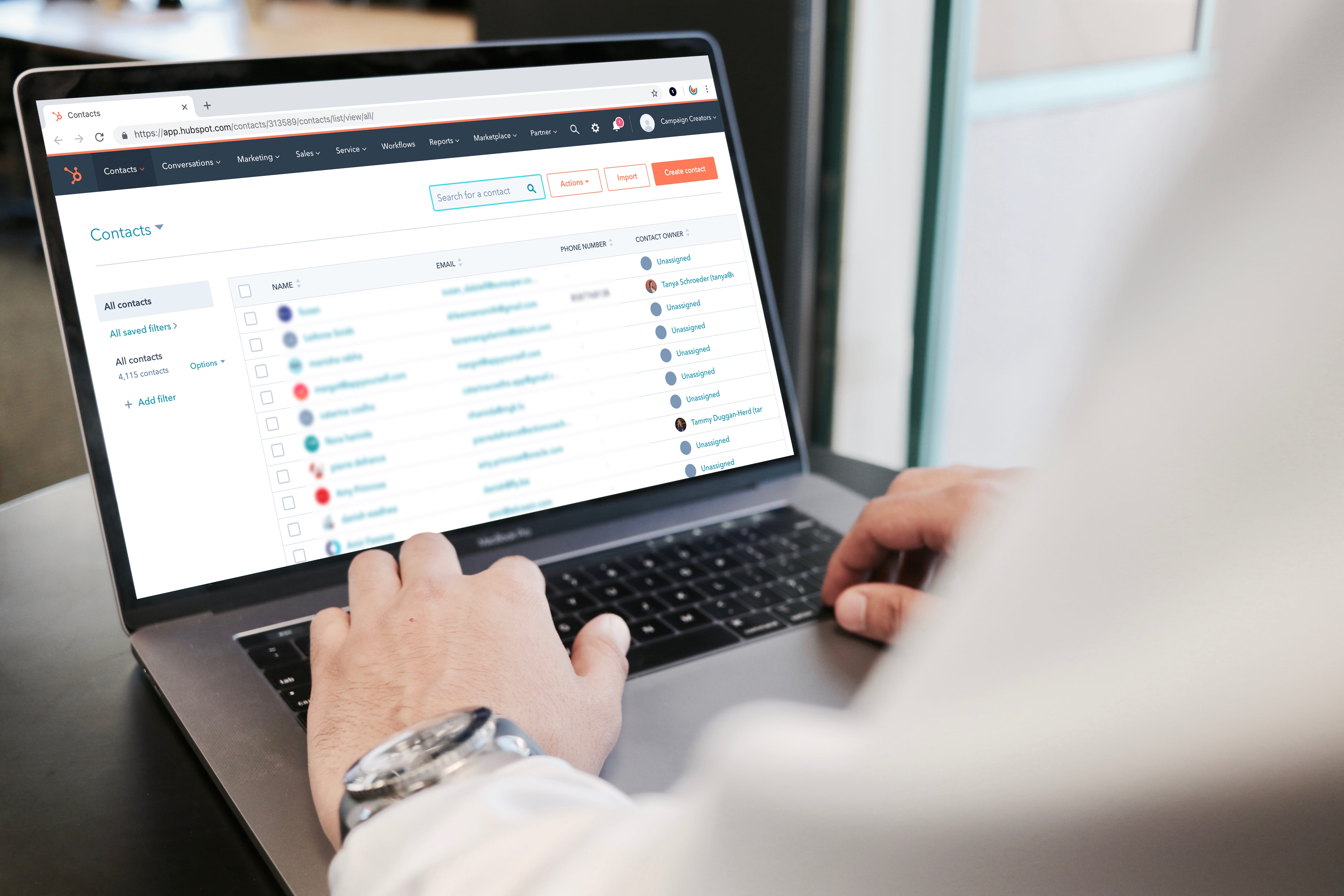
If you’ve been shopping around for a new CRM, you’ve likely seen the HubSpot CRM as a highly-recommended option. But if you’re still curious whether it’s the right one for your company, you’re not alone.
That’s why we’ve pulled together this comprehensive review of the HubSpot CRM as of 2020. Having nearly a decade of HubSpot experience, we have a lot to say. While we're huge HubSpot advocates, we also understand it's not the best CRM for every company.
Because technology is always evolving, we're here to give you the latest insights into this all-star CRM platform. By the end of this, you’ll be able to make a well-informed decision when determining whether the HubSpot CRM is right for you. Let’s dive in.
A CRM software is a Customer Relationship Management platform that helps companies manage and track all interactions with its past, current, and potential customers.
Think of an Excel spreadsheet, except way easier to navigate. A CRM system stores contacts and their information that creates a record of their interactions with your company. This can include online activity, past purchases, email exchanges, social media engagement, and more.
Besides helping businesses organize their customer and contact data, having a CRM can help you implement marketing automation, improve your customer retention efforts, provide accurate sales forecasting, and increase customer satisfaction. Having a CRM software will allow your company to create a much more personal experience for each of your customers and buyer personas. This is because a CRM provides sales reps the information they need to truly connect with leads, and close those deals. Essentially, the more organized your contact database, the better you can manage your customer relationships.
Besides the HubSpot CRM, other popular CRM software in 2020 include:
HubSpot's CRM covers all the bases necessary to help your company maintain strong relationships with your customers, no matter what role you’re in. Whether you’re in sales, marketing, customer service, operations, or responsible for all of the above, the HubSpot CRM will help you get your job done.
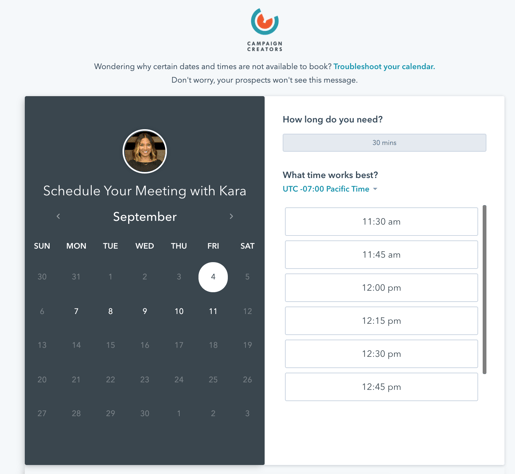
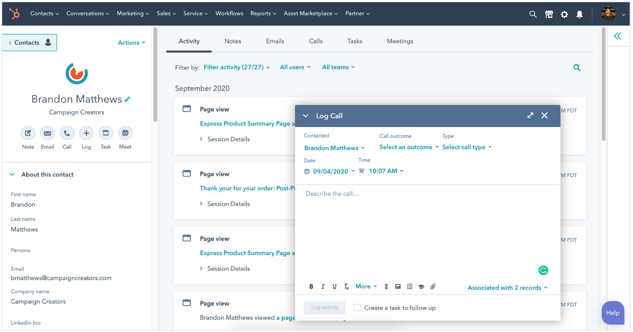
HubSpot’s integrations, also known as their HubSpot App Partner Program, is constantly growing. With over 200 integrations, it’s no wonder HubSpot’s CRM has been ideal for companies with existing technology.
Some of the most popular and successful integrations include the following.
Connecting your online shop to HubSpot has become easier than ever with their eCommerce integrations. HubSpot can easily integrate with Shopify to help you launch automate abandoned cart campaigns, post-purchase campaigns, and even cross-sell email series. HubSpot also integrates with Stripe so you can update your CRM with purchase information from customers.
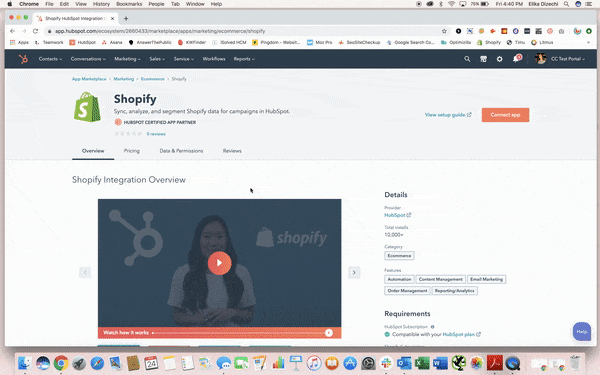
HubSpot's email tools are compatible with Outlook and Gmail. This allows you to log all email conversations in your HubSpot CRM, helping other team members understand the full scope of a customer. You can also access sales templates and sequences all within your inbox.
If you have Eventbrite or GoToWebinar, you’re in luck. These event platforms easily integrate with your HubSpot CRM so you can update contacts that registered for an event, attended an event, or even didn’t attend an event. This can help with further prospecting or segmented email follow-ups.
HubSpot easily integrates with Zoom and Uber Conference. Not only can you start meetings or calls within the HubSpot CRM, but the call details will be automatically logged into your CRM under each contact’s record.
HubSpot’s social media integrations are endless, including platforms like LinkedIn, Twitter, Instagram, and Facebook. These integrations will help you schedule out posts ahead of time and manage multiple promotional activities. The integration also provides insights about your audience, helping marketers and sales teams understand their ideal customers.
There are a variety of other popular HubSpot integrations, including Slack, Zapier, WordPress, and Survey Monkey.
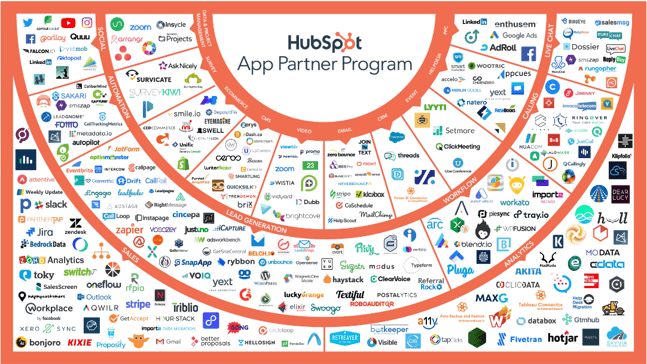
Additionally, the HubSpot CRM is optimal for pairing with HubSpot's Marketing Hub, Sales Hub, Services Hub, and CMS Hub which also comes free in their basic packages. In combination with HubSpot Sales, you can log emails in the CRM automatically, create new contacts from their email client, and view open and click activity on the contact record. When used with HubSpot’s Marketing Platform, organization of customer interactions is streamlined across marketing and sales—no more lost leads or contact data! These integrations are recommended both by HubSpot and users of the software.
The first major advantage of the HubSpot CRM is that it's completely free. While most CRMs come at monthly costs that can stray into the hundreds, HubSpot provides a free CRM that includes a generous bundle of features.
HubSpot’s free CRM promises you unlimited users, that your free access will never expire, and that you can store up to 1 million contacts and companies. It also comes with marketing, sales, and services tools that are all free as well.
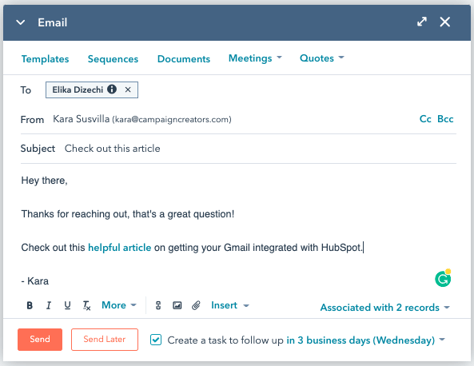
HubSpot's free CRM tools are plenty, but it’s important to note that they're limited. Generally, the more customized the feature, the more likely you’ll need to upgrade to the paid options.
Need to quickly figure out if HubSpot is right
for you? Get your expert opinion today by
booking your free strategy session.
As with any CRM platform, the HubSpot CRM software has its pros and cons. As you weigh your different options, it’s always helpful to hear from others about their experience with the software.
According to PCMag, they gave the HubSpot CRM a 4/5 rating, claiming that it is one of the more innovative CRM providers. Similarly, TrustRadius gives the HubSpot CRM an 8.3/10 with plenty of HubSpot users providing honest reviews.
An Account Manager at a Biotechnology Company left a review saying:
“It is well-suited when you need something more simple and easy to learn. However, if you are trying to build something more complicated in the developers back-end it can be challenging.”
A VP of Customer Success at a Legal Services company claimed:
"I would recommend this CRM for a company that is smaller. The complexity of multiple departments exponentially grows as you add multiple department heads needing more custom information.”
As HubSpot users that have been using the platform for nearly a decade, here are the pros and cons we see about the platform.
Fortunately, the HubSpot CRM tool is constantly being fine-tuned and updated, and users report continuing to see positive changes each month.
While the user-friendliness of the software is one of its greatest advantages, the HubSpot CRM setup can still seem a little intimidating given the bundle of features. A user finding themselves in need of help will have a few options available—either they contact HubSpot directly or take their questions to the HubSpot community forum.
Another option is getting assistance or training from someone professionally acquainted with the software—this is where we can help. As a HubSpot Diamond Solutions Partner, holding 80+ HubSpot Certifications team-wide, and leading the San Diego Central HubSpot User Group—we have HubSpot expertise that’s hard to find in other agencies. We can provide you the support and technical setup required to get you up and running with HubSpot in no time.
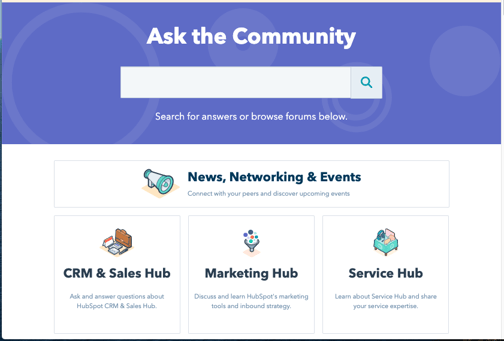 Source: HubSpot
Source: HubSpot
When it comes to choosing the CRM that's right for your company, there are a number of criteria to consider. This is because solutions are definitely not one-size-fits-all. Some platforms are better for smaller companies, and others may be better for B2B companies that need to manage deals, so it’s best to understand your companies needs and requirements before getting too lost in your CRM research.
We particularly recommend the HubSpot CRM for small businesses, B2B companies looking to integrate their marketing and sales funnels, or eCommerce brands looking for better management of contacts.
It has been touted as an ideal option for companies looking to transition into using a CRM with ease and minimal changes to their existing workflows. As a matter of fact, the HubSpot CRM can easily be set up in 5 days.
In addition, the HubSpot CRM is a certified premier Google partner. Because HubSpot CRM consistently ranks among the best, there’s no doubt it should be a platform to consider.
If you’re trying to figure out whether the HubSpot or Salesforce CRM is right for you, you’re not alone. Salesforce is a giant in the software world, and their CRM platform is a huge competitor to HubSpot. However, they do have their differences.
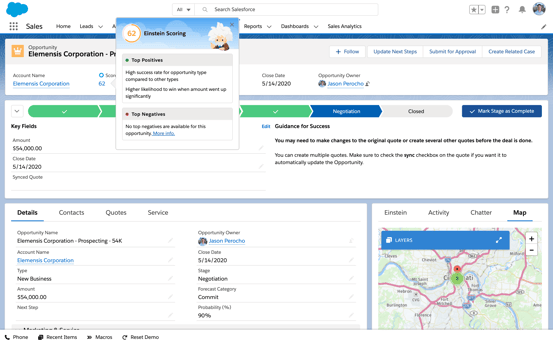
Source: tech.co
As far as pricing, HubSpot’s CRM is free, while you have to pay to get the Salesforce CRM. Salesforce has four pricing options ranging from $300 a year to $3,600 a year. The Salesforce CRM does have a 30-day free trial option if you’re not ready to fully commit just yet. So as far as pricing, it’s clear HubSpot takes the win for this.
Even though Salesforce’s CRM is paid, the features have proven to be worth it. HubSpot’s CRM comes with a variety of free marketing, sales, and services tools to help your company get started, but sometimes these tools are limited. Salesforce offers robust marketing and sales features including comprehensive social media marketing, B2B marketing automation, customizable lead flows, and more. You can still achieve these features with HubSpot, however, you’ll have to upgrade to the paid options.
Due to pricing and capabilities, small businesses find better success with HubSpot’s CRM, while mid-market size companies rely on Salesforce CRM. To learn more about the similarities and difference between the HubSpot and Salesforce CRM, PieSync does a great job comparing several elements, including cost, overall features, automation, reporting & analytics, collaboration between company functions, scalability, implementation, integration, and reviews.
But remember, you don’t have to choose one or the other. HubSpot does have a HubSpot Salesforce Integration so you can get the best of both worlds. The integration can help you get richer lead intelligence and revenue reporting and close the loop between marketing and sales.
If you're looking for a user-friendly, reputable CRM system that makes for smooth integration and incorporates the no-frills features you need at an affordable price—the HubSpot CRM makes for an excellent candidate.
If you’re still not sure whether the HubSpot CRM or other HubSpot platforms are right for you, we can help. Book a free strategy session with us so we can evaluate your current online strategy, identify your biggest marketing gaps, and determine the best solution for you. Get your free expert opinion today.
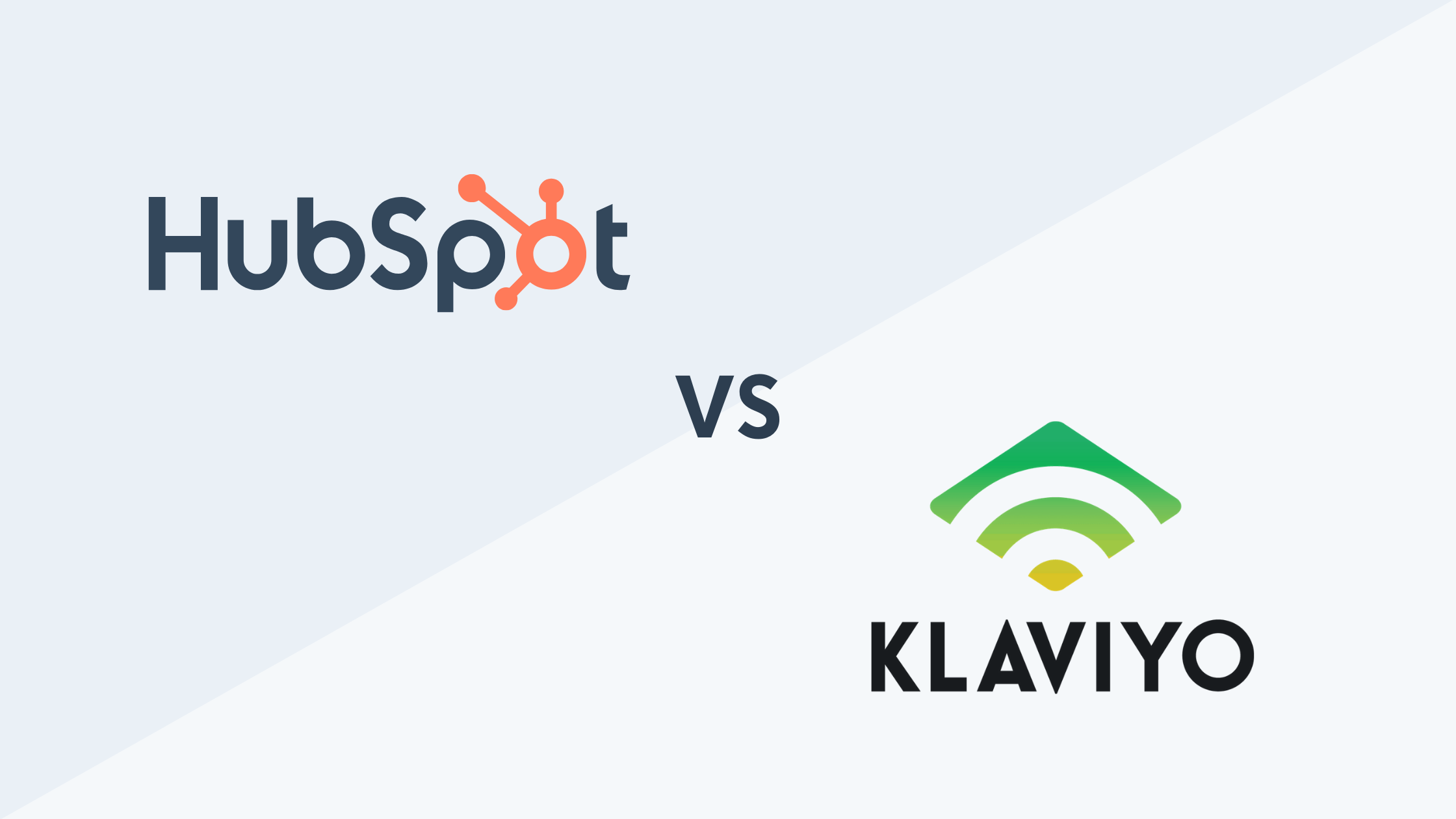
The competition is high for email marketing software due to countless companies entering the playing field each year. As HubSpot continues to...
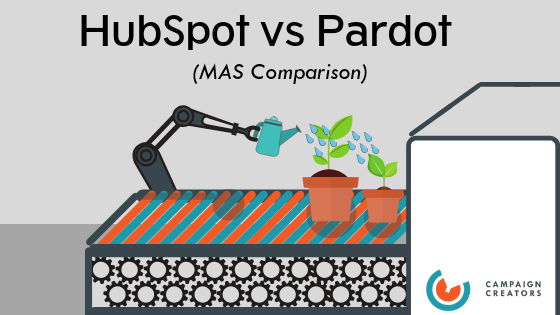
1 min read
Why should you care about marketing automation systems (MAS)? A marketing automation system is a tool that combines many different functions of...
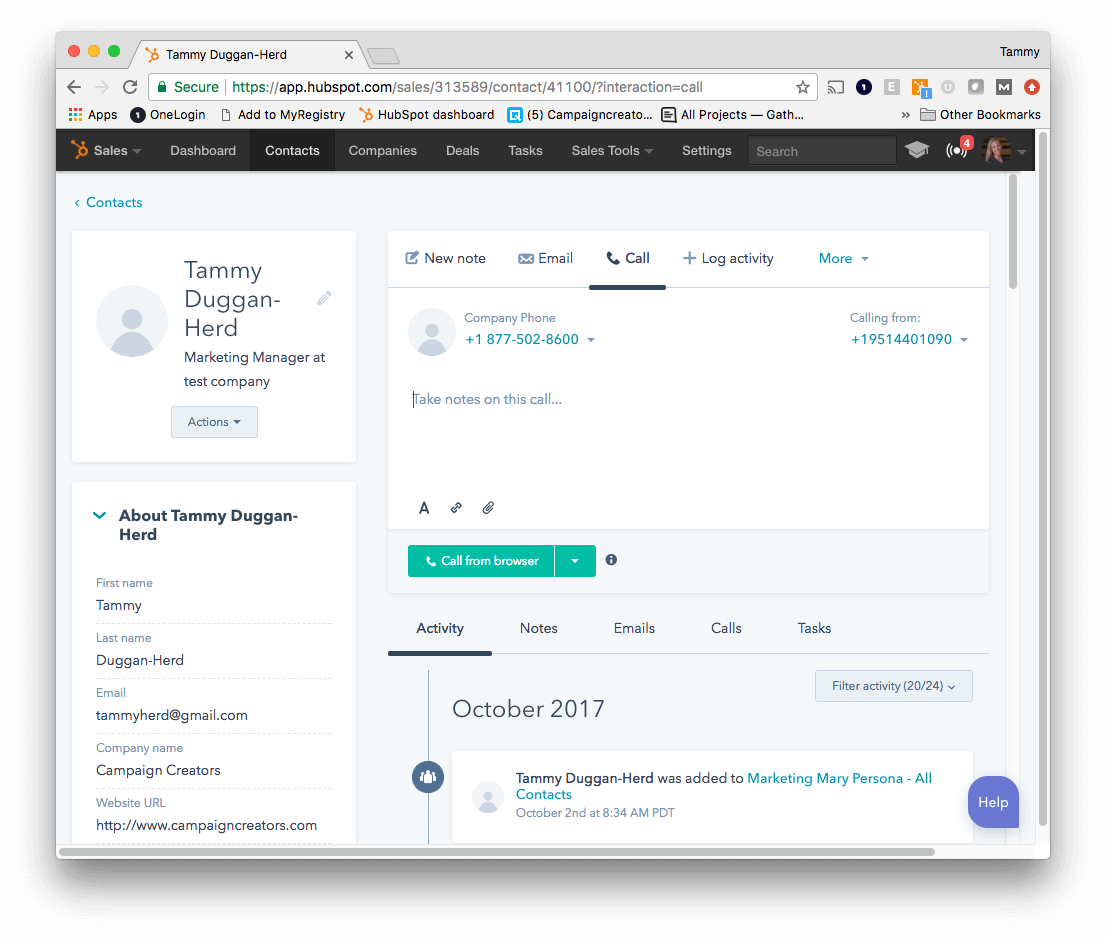
It's well known in the inbound marketing world that HubSpot offers some of the most powerful marketing, CRM, and sales platforms. Their software...